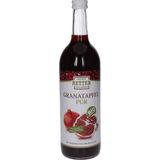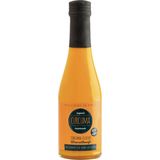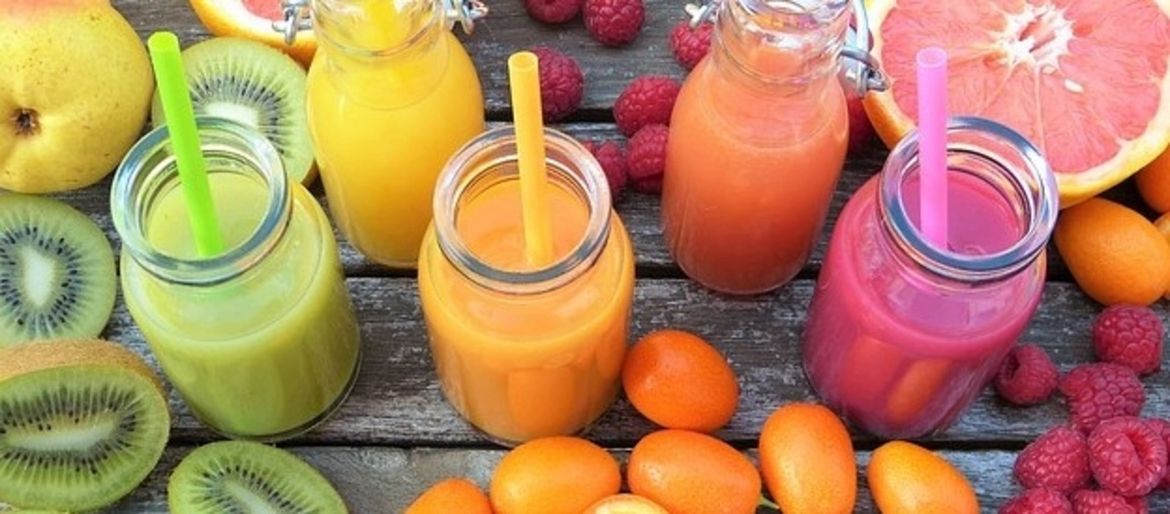Juice- A Delicious Refreshment
When it starts to heat up outside, juice offers a delicious refreshment for people of all ages. One glass of fruit juice can also contribute to the five portions of fruits and vegetable your body needs daily. Whether or not your juice fulfils this requirement depends on the type of juice you drink.
Types of Fruit Juices
Basically, there are two types of fruit juices:
Fresh Juices
Fresh juices describe juices that are not concentrated but freshly bottled. Although the production of these juices is basically mechanical, enzymes are sometimes added. The juices are preserved via pasteurisation, which means they are heated to about 85°C for a short time.
Fruit Juice from Concentrate
In order to be able to store and transport juice more cheaply, concentrates are made by removing water from the juice using vacuum pressure. When the juices are bottled, more water and flavours are added. The concentrate is pasteurised to make it more durable and to kill any germs. In this process, many of the valuable ingredients originally contained in the juice can be lost.
In addition to these juices, you may also come across fruit nectars and fruit juice drinks. While the former must contain a fruit juice or fruit-pulp content of at least 25%, it may also contain up to 20% sugar or honey. Fruit juice drinks consist of up to 30% fruit juice and water, sugar, various flavourings and additives and sometimes added vitamins. In addition, when vitamins are added, gelatin is sometimes used as a carrier and remains in the juice.
The Problem with Additives
As with all foods, the ingredients found in juices must be listed on the product's label. However, some substances do not fall under the category of ingredients that have to be listed. These substances are the so-called "technical auxiliaries". These technical auxiliaries may be added, but they do not have to be mentioned on the package. Thus, the consumer ultimately does not know what is in the juice. The most common additives include flavourings, enzymes, tannins, cellulose, carbon and also gelatine.
Why Isn't All Juice Vegan?
Fruit juice is made from fruit and is of course naturally vegan. However, fruit juices often contain animal products or their residues. To add clarity or beautify the juice, egg whites or gelatin is often added. Since these ingredients are filtered out of the juice later, they are not considered ingredients and do not have to be listed. For this reason, vegans should take care when shopping for juices. To be on the safe side, we recommend that you look for vegan certifications.
Naturally Cloudy Juices are Better, Right?
Natural cloudy juices are less treated and contain a much higher proportion of valuable substances - right? This is a hard question to answer. "Naturally cloudy" juice is sometimes clouded retroactively to give the consumer the impression of a natural drink. Ultimately, however, the resulting "naturally cloudy" juice is processed just as much as clear juices.
To make a naturally cloudy juice after the juice is filtered, ingredients are sometimes added afterwards. These additives provide an attractive appearance. The one thing you can look for is if these ingredients settle in the glass. If they settle, they are natural, letting you know the juice is actually naturally cloudy.
Organic Juices- Better for People & The Environment
Organic fruit juices are regularly tested for quality and are made from organic ingredients and do not contain any additives like flavourings or vitamins. They may still have added egg whites or gelatine so the juices may not be vegan.
Like many foods, the closer your fruit juice is to its natural fruit state, the better it is for you! Look for organic certified juices that are guaranteed to contain no pesticides, additives and undeclared technical excipients. From the orchard to the bottle, these juices comply with the strictest quality guidelines and sustainability measures for organic foods. Organic juices are tasty, nutritious and a guilt-free treat!
Related products
-
 5.0 (7)
5.0 (7)Obsthof Retter Organic Pomegranate Superfruit Juice, 750 ml
- 100% pure juice juice
- Naturally cloudy without additives
- Fresh and fruity taste
€ 8,99 (€ 11,99 / l)Delivery by February 10
-
 € 17,99 (€ 35,98 / l)
€ 17,99 (€ 35,98 / l)Delivery by February 10

